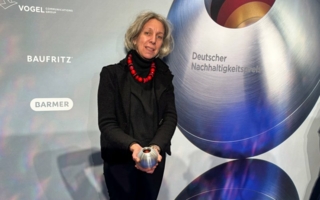26/04/2019 – Martin Auerbach’s column — auf Deutsch lesen
“Me first” – losing the ability to shift one’s perspective
Putting yourself in the other person’s shoes? For many people, it seems to be a lost art. And yet it is crucial to mutual understanding.
Trying to understand the opposite
We’ve all seen it: a heated discussion on a controversial subject between two individuals, both of them trying to defend their positions with as many arguments as possible. In the end, both sides remain frustrated because they each stuck rigidly to their positions and couldn’t understand why the other wasn’t moved by the overwhelming force of their argument. And yet it would be relatively easy to find out what was important to the other side, if each would only listen to what the other had to say; to understand more about the other’s world, they need only ask why such and such a point is important to them. Bad experiences, fear and anxiety can be a significant factor in the other person’s initially incomprehensible attitudes, but moral and ethical positions are also often lurking unrecognised in the background. If I know what drives or motivates the other person, I can put myself in their shoes, grasp their behaviour or attitude and ideally accept it, or at least take it into account in seeking a solution.
Shifting one’s perspective is enormously helpful in everyday disagreements
In doing so, a person can gain a significant advantage, in my opinion, over a rigid opponent who is fixated on himself and his own arguments. Simply asking the other party, “Please just put yourself in my position,” can also open them up to a different point of view.
This ability to change perspective, however, seems to have disappeared in many of our fellow human beings. My favourite example can be observed any day of the week at any German grocery discount chain. There’ll always be at least one driver parked directly in front of the entrance – in the very place where there is absolutely no space for a car – despite the availability of empty parking spaces. How much energy does it take for the errant driver to edit from view the overwhelming number of properly parked vehicles and the free parking spaces, and to stick rigidly to his or her own, admittedly comfortable but with regard to other people quite inconsiderate, point of view?
It’s all a matter of perspective, said the driver as he drove down the motorway in the wrong direction. Hearing several radio warnings of a car heading into oncoming traffic, he called the police in a rage to put them right: “What do you mean, one car? There are thousands of them!”





